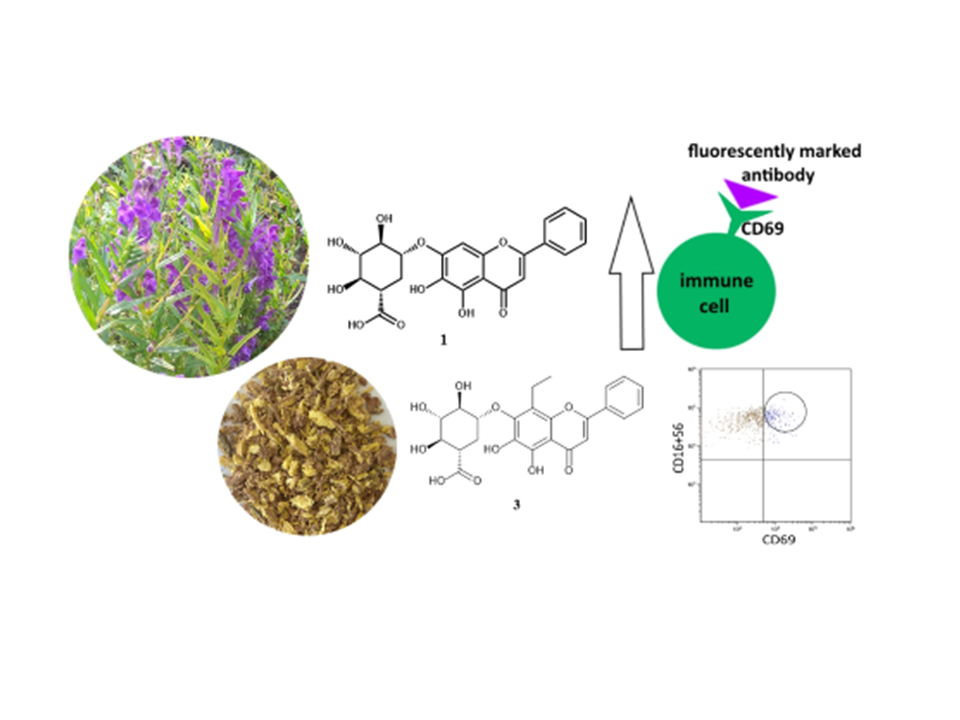JOURNAL 1976
Records of Natural Products
Year: 2022 Issue: 2 March-April
p.188 - 193
Viewed 2589 times.
GRAPHICAL ABSTRACT

ABSTRACT
This study investigates the activation of human immune cells (T, B, and NK cells, and granulocytes) by the ethanolic and aqueous extracts of Scutellaria baicalensis root (SBR) and to identify the compounds responsible for such an effect. The cell activation was determined by expression of the cell surface glycoprotein CD69 (cluster of differentiation 69), as measured by flow cytometry. The content of the main flavonoids in SBR extracts was estimated by high performance liquid chromatography with a diode array detector. NK cells were substantially activated by the SBR ethanolic extract (25–200 µg/mL), whereas B cells were activated on a lower scale. NK cells were slightly activated by the SBR aqueous extract (100–200 µg/mL). Wogonoside and baicalin, two major flavonoids present in the SBR extracts, exhibited the highest activation effect on NK cells. The content of baicalin, wogonoside, and baicalein accounted for 201.2, 47.7, and 3.4 mg/g in the ethanolic extract; and for 150.4, 33.6, and 4.6 mg/g in the aqueous extract, respectively. This study shows the immune-stimulating properties of SBR extracts and identifies their active compounds. This data may support the potential utilization of SBR for strengthening the human immune system against bacterial and viral infections.
KEYWORDS- Scutellaria baicalensis
- Iimune-stimulation
- flavonoids
- baicalin
- baicalein
- wogonoside